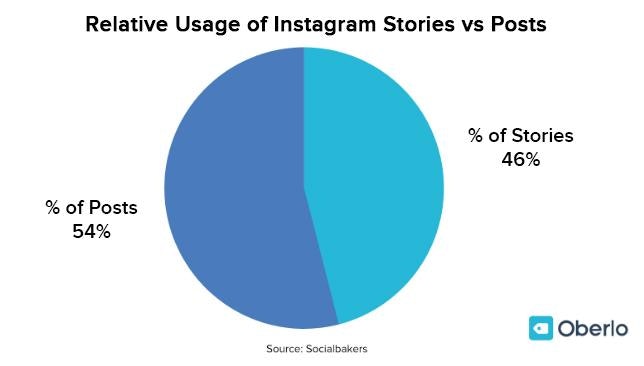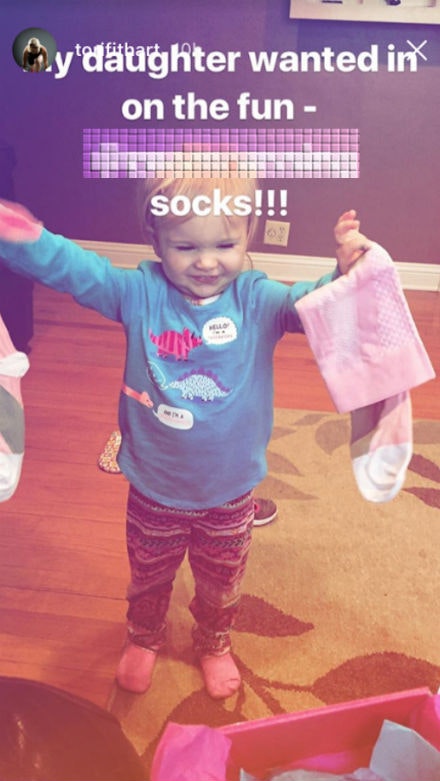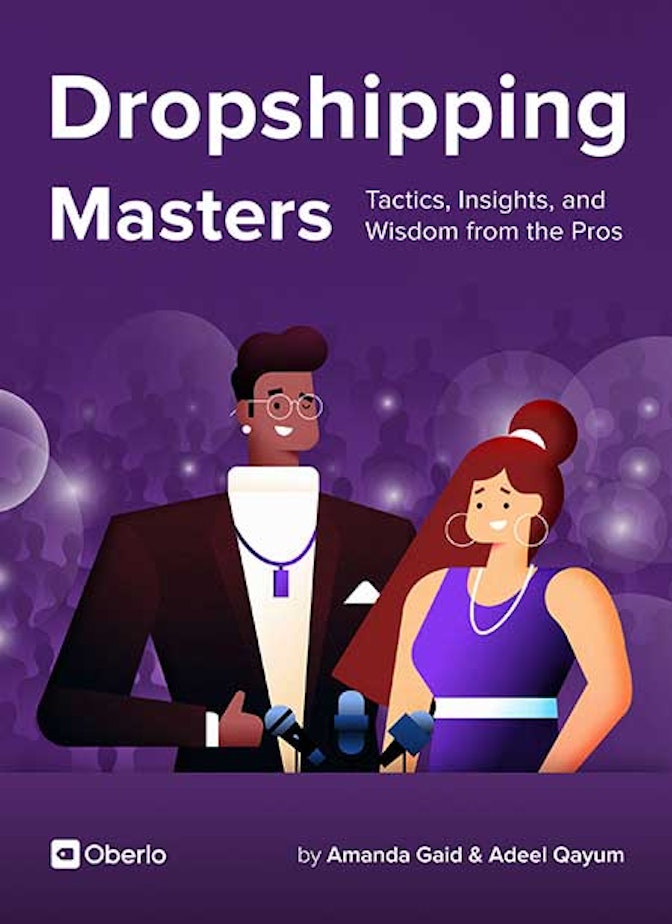It’s no secret that Facebook ads are one of the best ways to increase sales for your ecommerce website.
According to Mary Meeker’s Internet Trends report, internet ad spending has grown 21% year over year, with Facebook's ad revenue increasing 1.9X since 2017. This goes to show the power of Facebook's ad platform.
But what if you don’t have the money to spend on ads? Is your quest to build a successful online store doomed for failure?
If you look beyond the standard advice that is to invest in Facebook advertising, there are a number of alternative ways to market your online store that are just as effective (in some cases, even more so) in driving product sales.
Let’s take a look at some recommendations from our Dropshipping Masters on how to make sales without Facebook ads.



Partner with Instagram influencers
Instagram is home to more than 500,000 influencers with more than 15,000 followers.
To add to that, 81% of these influencers are “micro-influencers” with 15,000 to 100,000 followers.
→ Click Here to Launch Your Online Business with Shopify
If you’ve been living under a rock, micro-influencers are influencers with smaller followings. They’re easier to connect with and their audience is usually receptive to whatever content they share on their pages. Unsurprisingly, they’ve have helped many store owners get their first sale and even earn a sustainable income.
Karolis Rimkus, for example, used Instagram to get eyeballs on his running gear brand, and built relationships with Instagram influencers to help market his products.

Karolis Rimkus says,
“At first I made contact with several different influencers. I would send micro-influencers, individuals with like 8,000 followers, an item they could host a giveaway with, or just send them a few free products in exchange for mentions. It worked, and I was growing my store and making sales.”
Master bonus: If you’re interested in learning more about influencer marketing from Karolis, check out this video.
Feature photos of influencers on your Instagram page
When it comes to promoting your product with the help of an influencer, photos help to boost authenticity. And Instagram influencers are usually happy to share their photos with the brands they work with.
As you score partnerships with various influencers on Instagram, see if you can find a few up-and-coming influencers who are willing to send you their photos where they’re reviewing your product or brand.
Tim Vangsness, who shared with us his plan for how to build a profitable leggings store with a $500 startup budget, recommends aspiring store owners to get as many photos as possible.

Tim Vangsness says,
“You want images of influencers using your product to show that it’s legitimate. For certain products, if you manage to get them to send you a good photo, the cost of sending the product to someone might bring two or three times the amount in sales.”
Use Instagram Stories to your advantage
According to Socialbakers, IG Stories have grown in popularity so much that brands are using them as frequently as they are using normal posts.

The fact that the content is accessible for a limited period means there’s an urgency that most forms of marketing mediums don’t offer.
In other words, Instagram Stories have the potential to make people curious, engaged, and receptive.
Remember Karolis Rimkus’ influencer marketing strategy from the first point? One of his best influencer partnerships involved the influencer endorsing his product through an Insta story.
Karolis got in touch with a suburban mom blogger who was gaining influence on Instagram for her fitness and running posts. He sent her free items to review. When the package arrived, she posted images of her kids unwrapping the box on IG Stories.
Her followers loved it and trusted her content, and sales started to pour in.


Karolis Rimkus says,
“Don’t hesitate in exploring beyond the standard content feed. I would have not known the potential of Instagram Stories if I hadn’t experienced it.”
Leverage the power of Facebook groups
If you don’t have a budget for ads, but you still want to generate sales from Facebook, consider posting about your products in Facebook groups.
Put simply, Facebook groups are communities of common people with targeted interests.
As you contribute to the group and help other people out, you’ll see that the community is there; they’re going to listen to you, share your content, and even buy products based on your recommendations.
Utah-based mom entrepreneurs Mandie and Aubrey had their humble beginnings as a small Facebook group. The initial plan was to use the group to sell products locally to people within their circle, which consisted of other moms and friends.
Mandie and Aubrey would order the supplies in bulk and have them delivered at their door, where customers would come to pick them up.
It was a basic setup, fueled by the personal bond and relationship Mandie and Aubrey had developed with so many of their clients through the Facebook group. Customers trust their recommendations and will give them their business again and again.

Mandie of Mandie and Aubrey says,
“We get about 40 to 50% repeat customers every week. We’ve got some people where we know their names now and we’re like, ‘Oh, love her. She buys everything every week.’”
This goes to show how a Facebook group can serve as a foundation for a thriving ecommerce business, helping aspiring entrepreneurs to find an audience to sell to.
Moreover, groups are a great way to drive traffic to an existing store. Store owners can post about their brand in groups to drive traffic to their website, and then use product page best practices to convert visitors into customers.

Tim Vangsness says,
“If you come across Facebook groups relevant to your niche, take advantage! Post about your products in them to try to generate traffic.”
Present and demonstrate the products to your customers
Even if your products are simple to use, it’s helpful to create some tutorial or demonstration to explain how they work and how can customers get the most out of their features.
Mandie and Aubrey, for instance, tested every item themselves before they recommended it to a group member.
They ordered the products themselves, then took photos to demonstrate how they work. They even did some Facebook live videos to explain the product’s features and uses.

Doing this helped them get a lot of good feedback. Customers knew they’d be receiving high-quality products as the group owners were using it themselves.

Mandie of Mandie and Aubrey says,
“Customers saw the content and they’d say, ‘Oh my god, you’re applying that tooth whitening product? And those are your teeth?’ and I’m like, ‘Yes, here’s my face and my very own teeth!’”



Boost sales with a cross-selling app
Cross-selling is where you recommend a product relevant to the one that’s already in the customer’s shopping cart.
An example would be recommending a screen protector for the smartphone that the consumer is about to buy.
Here’s the great thing about this tactic: cross-selling doesn’t just increase average order value; it also increases the lifetime value of your customers.
In other words, it encourages people to make additional purchases from your store while they remain customers. And that’s why it’s so valuable to the bottom line of your business.
Incredibly, most ecommerce platforms of today allow you to automate the entire process. You just need to install a cross-selling app that’s compatible with your platform of choice, and it’ll help increase the sales of your store by recommending relevant products to your customers.
Ross Madden, for example, had great success when he installed a cross-selling app on his charcoal products store.

Ross Madden says,
“I installed the app several months after launching my website. When someone added the charcoal powder to their cart, a pop-up would come up, giving them an offer of a toothbrush to buy together. To my surprise, 60% of customers would always opt-in for the toothbrush. And I made more sales for the toothbrush than I did for the charcoal powder!”
Bonus: Interested in learning more about Ross? Check out this game of “13 questions.”
As you can see, there are several opportunities to make ecommerce sales that extend far beyond Facebook ads.
The quickest ways to diversify your marketing approach use tactics like influencer marketing, product demonstrations, community building, and cross-selling.
In the next chapter, we’ll see what our Dropshipping Masters would do if they had only $500 to spend on marketing.o


